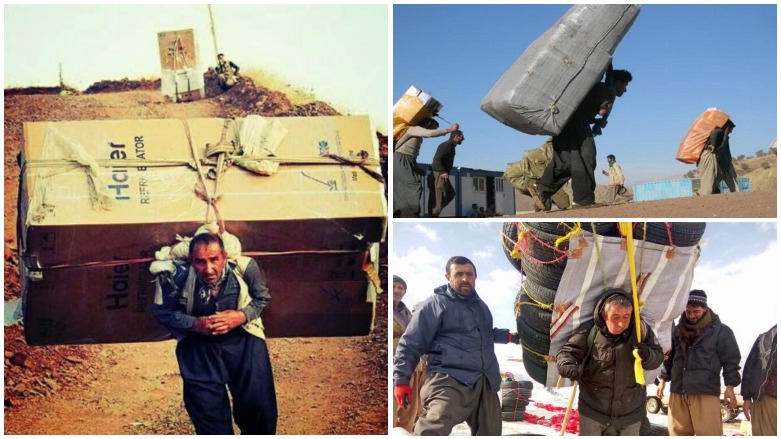Iranian border guards, landmines continue to kill Kurdish border couriers
Three Iranian Kurdish (Rojhilat) couriers known as Kulbar were killed or injured by landmines in mountainous areas bordering the Kurdistan Region on Monday, adding to over 100 other casualties among their numbers in the past six months.

ERBIL (Kurdistan 24) – Three Iranian Kurdish (Rojhilat) couriers known as Kulbar were killed or injured by landmines in mountainous areas bordering the Kurdistan Region on Monday, adding to over 100 other casualties among their numbers in the past six months.
Kulbar is the Kurdish term for individuals who smuggle small amounts of goods across the border. (“kul” meaning "back" and “bar” meaning "carrying") Though illegal, it is a local practice that has long since been accepted as normal in the economically undeveloped areas where many residents depend on it for their livelihoods.
Monday's incident occurred near a village in Marivan (Mariwan) County in Iran's northeastern Kurdistan Province. Two of the Kulbar were killed and the third lost a leg, according to the Hengaw Organization for Human Rights.
“The Sepah [Islamic Revolutionary Guard Corps] of Iran has extensively laid landmines across the border with Kurdistan to discourage Kurds from passing through, and this has led to the deaths of tens of couriers,” claimed the group in an online statement following the incident.
Areas along the border are also still littered with landmines laid in the Iran-Iraq War in the 1980s.
Hengaw, which writes on human rights violations involving Kurds in Iran, recently published their bi-annual report on the number of casualties sustained by Kulbar. On Saturday, Hengaw reported that, from mid-March to mid-September, they had recorded the death or injury of 104 Kulbar.
Many citizens in impoverished Rojhilat who find few other means to earn a living risk criminal charges, their safety, and their lives by making the perilous treks on a regular basis. They routinely spend days climbing near-impassable paths while carrying back-breaking amounts of goods such as tobacco, tires, and tea.
For this, many make as little as $10 per day.
Out of the 32 who had died, according to the rights group, 21 died after being shot by border guards, a constitutionally prohibited act if the suspect is unarmed and poses no clear risk. Three had also died from vehicle accidents, two from landmine explosions, two from heart attacks, and four from trauma after falling from steep mountain paths.
Out of the 72 Kulbars that were injured, 45 were shot by border guards, ten were wounded in falls, eight from landmines, eight in vehicle accidents, and one of them was injured when a large load of goods fell on top of him.
The Kulbar included in the report were all from the border provinces of West Azerbaijan, Kurdistan, and Kermanshah (Kermanshan), 64 percent, 26 percent, and 8 percent, respectively.
Editing by John J. Catherine
